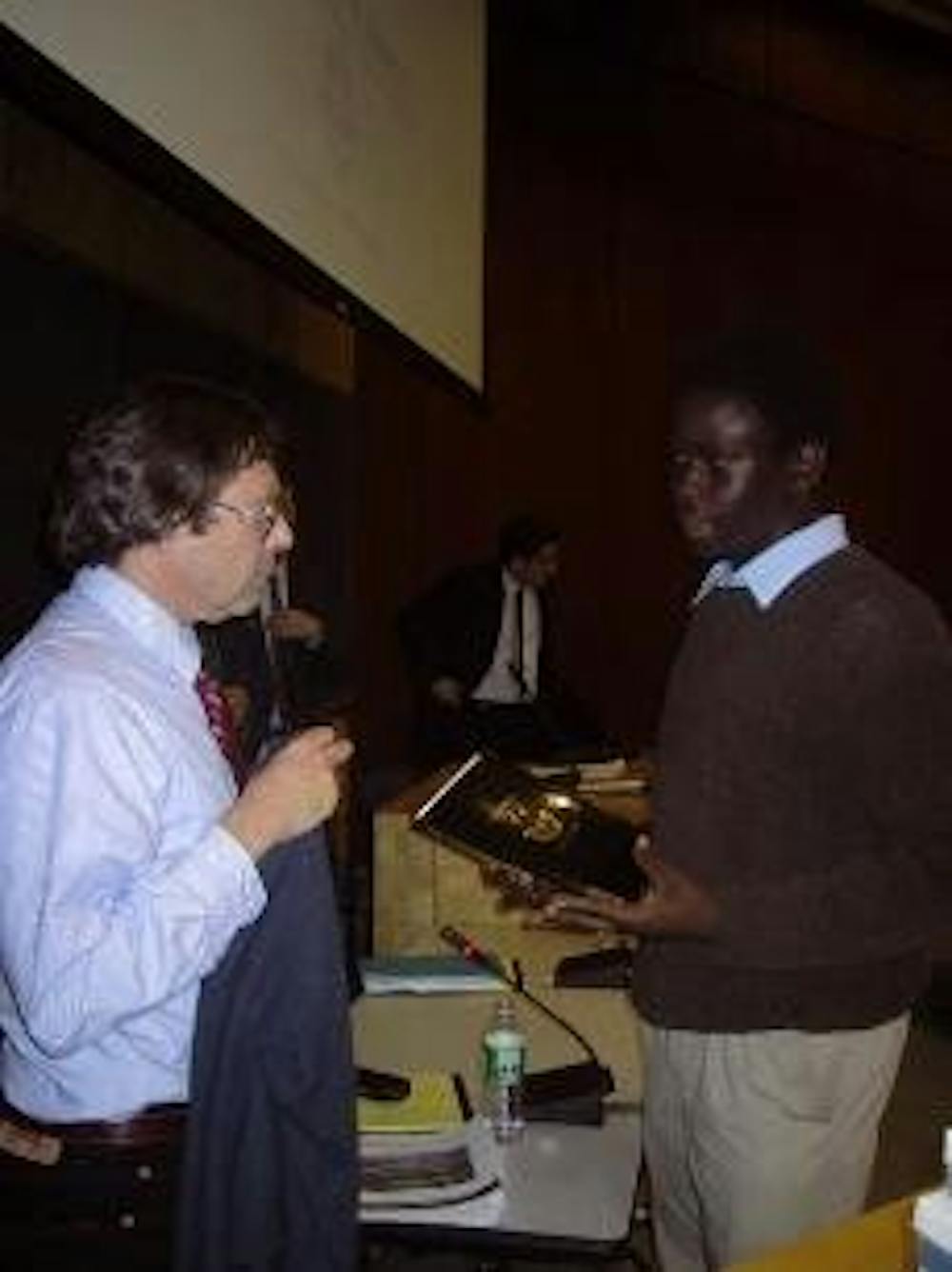You might know that the United States makes up less than 10 percent of the world's population.
You might not know that, as a nation, the United States consumes more than 25 percent of the world's energy, however.
That was only one of the harsh realities presented to the 120 students who gathered this weekend at Columbia University for the Ivy Leadership Summit on the future of energy.
The Office of Student Life paid for 16 Penn delegates - half of whom are members of the Undergraduate Assembly - to go to the conference, which was open only to students from the Ancient Eight.
All attendees had to answer questions about their commitment to the environment as part of an application process administered by the Ivy Council - an assembly of representatives from all the Ivy League schools that was in charge of the Summit.
Participants listened to a slew of speakers ranging from professors to government representatives and businessmen and discussed oil-related problems, sources of alternative energy and the future of nuclear energy.
"The government . is a lot more worried than they're letting on about securing [energy] resources for the United States," said panelist Bruno Stanziale, ABN AMRO bank director and head of Energy Derivative Sales for North America.
"The weakest part of this country is our dependence on oil," he said.
Keynote speaker Theodore Roosevelt IV, the managing director of Lehman Brothers, pointed to other issues on the national agenda.
"I believe that climate change is the most important environmental issue that we face, barring a nuclear holocaust," he said.
Students' questions, meanwhile, pushed for answers on the relevance of Iran and North Korea in the debate.
Examples included questions relating to U.S.-Iran relations and expansion of the U.S. nuclear energy program.
Panelist Michael Levi, a representative from the Council on Foreign Relations, said he thought speaking to undergraduates was particularly important.
"Everything nuclear comes with a lot of Cold War baggage, and it is important to have people without that baggage thinking about it," he said.
Those in attendance left gratified with the amount of information they learned.
College freshman Enoch Arthur-Asmah, who serves on the UA, said he liked the lectures because . [of] new information that he would not have had time to acquire on his own.
College senior Graham Prentice added that he hopes "growing awareness of these issues will lead . people to . help make positive change for the University," he said.
Columbia sophomore and conference chair Anushree Doshi likewise declared the conference a success.
Participants "were really interested in how they could practically apply [lecture points] to their campus," she said.
The conference occurred on the same day that the United Nations Intergovernmental Panel on Climate Change released a report warning of catastrophic damages that could occur if greenhouse-gas emissions are not reduced.



